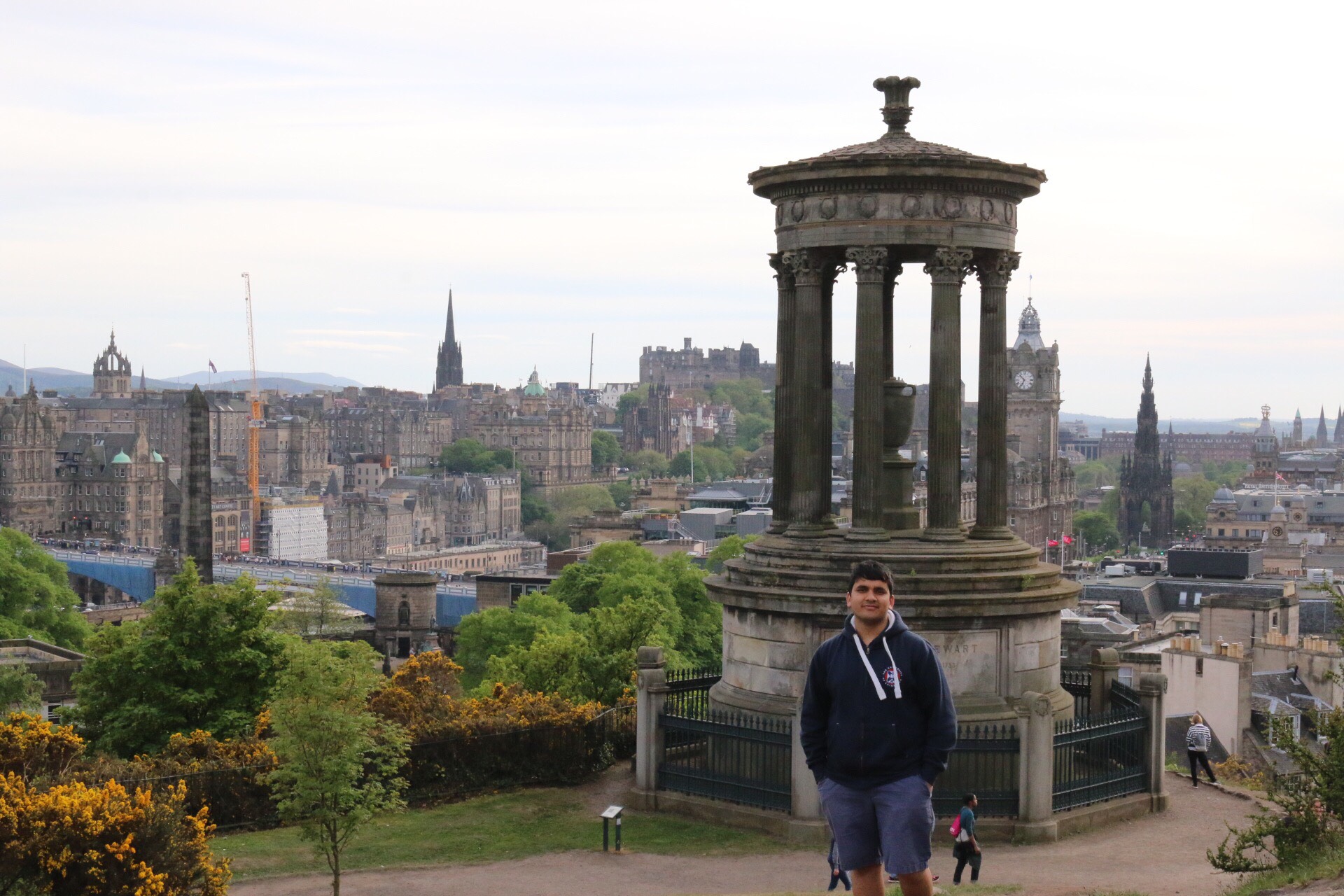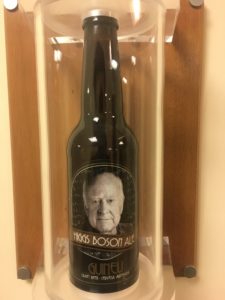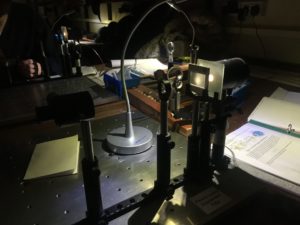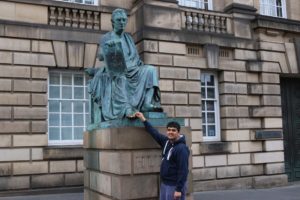Making the Best out of Academic Opportunities Abroad


As an international student in the U.S. from Nepal, I found the transition to the culture in the States quite intriguing. I struggled to adjust to the social setting on campus for almost my entire first year. In contrast though, given the small liberal arts setting at Trinity, my academic transition to the new system was not as bad.
Nevertheless, I was very nervous before heading to the University of Edinburgh primarily because of the size of the university. Even on the day when I was about to leave for Scotland, I was constantly questioning if I was ready to take that leap. My anxiety also stemmed from the fact that I was going to be abroad for an entire academic year. Since I had just started to fit into Trinity’s social life, I was stressed if I had to go through the same miserable phase during my first year at Trinity.
Stepping Out of my Comfort Zone

My prime motivation behind the decision to study abroad for the entire year was to take as many upper-level physics and mathematics courses as possible. When I was a sophomore, I had made up my mind to pursue my Ph.D. in physics, and I realized that I needed to take more courses than what is offered at Trinity.
However, the U.K. education system was different, and I was nervous about adjusting to yet another change in the academic setting. I was so used to sitting in a lecture room of not more than 20 students at Trinity that the thought of attending lectures in a big hall with almost 200 students scared me.

Furthermore, the ease with which I could see my professors on a regular basis to seek advice and get feedback on my work had been crucial to my academic performance at Trinity. However, based on the comments I had heard from some of the Trinity alums who once attended the University of Edinburgh, it was almost impossible to see professors outside the classroom.
Moreover, I had registered for five upper-level physics courses for the fall, and even though I wanted to make the most out of the opportunity at hand, I doubted if I was well-prepared to withstand such a heavy course-load at such a rigorous level.
Key Academic Differences Between Trinity and The University of Edinburgh
The first few weeks of the classes were tough because the lectures gained momentum much faster than the way they normally did at Trinity. Consequently, I had a hard time catching up with the pace, and I ended up doing lots of self-reading until I finally got hold of the materials. One of the most important differences was that none of the courses I was taking in the fall had any assignments or quizzes and all of them were graded 100% final exam. While I could have taken it as a wonderful opportunity to do some traveling, I was confused as to how exactly to plan my study. Startled, I talked to Ruth Casey, Senior Resident Director at IFSA Scotland, about it, and she advised me to talk to my Personal Tutor to get help on academic affairs.
Then, I reached out to my Personal Tutor (PT) who advised me to use some books and practice questions from previous exams that were uploaded online on the university websites. The other unique aspect of the education system at the university was the idea of tutorials/workshops. There were tutorial sessions for all the classes (except the lab courses), and some graduate students helped us with some practice problems.
I found tutorials very helpful because they were opportunities to not only get help in solving problems but also discuss career prospects in different fields of physics. Also, most of the lectures were recorded and were available for revisions in the university student portal. Thus, it was not a big deal if I had to miss a lecture or two due to various circumstances.
There were no significant differences regarding the materials of the courses. However, the approach to teaching differed vastly from one professor to the other. For instance, I took two semesters of Quantum Mechanics in Edinburgh. The first semester of course was centered around laying a robust mathematical foundation and the second semester used the mathematics to treat several topics in Quantum Physics. In that regards, one needed to be very comfortable with the first semester materials even to get anywhere close to understanding ideas taught in the second semester. Unfortunately, my first-semester professor rushed the course in such an astounding pace that by the time the first semester ended, I was not sure if I understood anything. Thus, I was very worried about how to handle the materials in the second semester.
However, the professor who taught the second half of the course invested much time in reviewing materials from the first semester and did not rush at all. Surprisingly, I learned so much about Quantum Mechanics in the second semester. Similarly, the lab course I took was also comparatively more systematic and required more effort than the ones I had taken at Trinity. There were just four experiments in total- each of them lasting for three to four weeks. However, I had to keep a detailed lab notebook for all the experiments and write about twenty pages of formal lab report at the end of the experiment. It was time-consuming, but I learned a lot from lab works in Edinburgh.
Debunking Myths Surrounding Opportunities Abroad

To my utmost surprise though, the rumors that I had heard about the university were just myths. Earlier in the semester, I did not even dare ask professors for help outside class because I just assumed that they were busy with their research projects. My notion about the professors changed when I met Dr. Richard Kenway – a theoretical particle physicist in the university and my Lagrangian Dynamics professor. I found Dr. Kenway very accessible and friendly. Despite mostly remaining busy in his research work, he always managed time to help me with problems, and it made me comfortable with the course materials.
My frequent meetings with Dr. Kenway motivated me to ask other professors for help as well, and I was taken aback to find that all of my professors were always available for students. That was such a game changer for me because apart from getting help in my coursework, I also sought advice on my career as a physicist. Such opportunities to learn from some of the pioneers of the field helped me identify my potential areas of interest in physics.
Best Decision Ever!

My time in Edinburgh definitely did not remain confined within the realm of physics- I made so many friends, traveled a lot during the spring semester, and explored the city and its culture; and I will cherish those wonderful moments for the rest of my life. Most importantly though, Edinburgh gave me the purpose of my life because I know what I want to do after graduating from Trinity. I am more excited than ever before on the prospect of becoming a physicist, and I will always be thankful to Dr. Kenway for inspiring me to be a part of one of the noblest scientific pursuits.
Aashwin B. | Physics and Mathematics major | Trinity College | University of Edinburgh Partnership | Academic Year 2017-2018